Most Recent Turmeric For Cancer Case Studies In 2025
What Is Turmeric Good For in Cancer? Mates, if you’ve been hearing whispers about turmeric for cancer, you’re not alone. This golden spice, a staple in Asian kitchens for centuries, is making waves in the science and medical communities for its potential to fight cancer. But with so much hype—and some dodgy claims from companies promising cures—it’s time for a clear, honest look at turmeric and cancer. I’ve dug deep into the latest research to uncover what’s real, what’s promising, and what still needs work when it comes to turmeric benefits for cancer. Whether you’re in your 40s or 60s, dealing with creaky joints or worrying about family health risks after grandkid footy, let’s chat about why turmeric might be your midlife wingman. Curious for more? Check out our best turmeric supplements guide on the homepage.
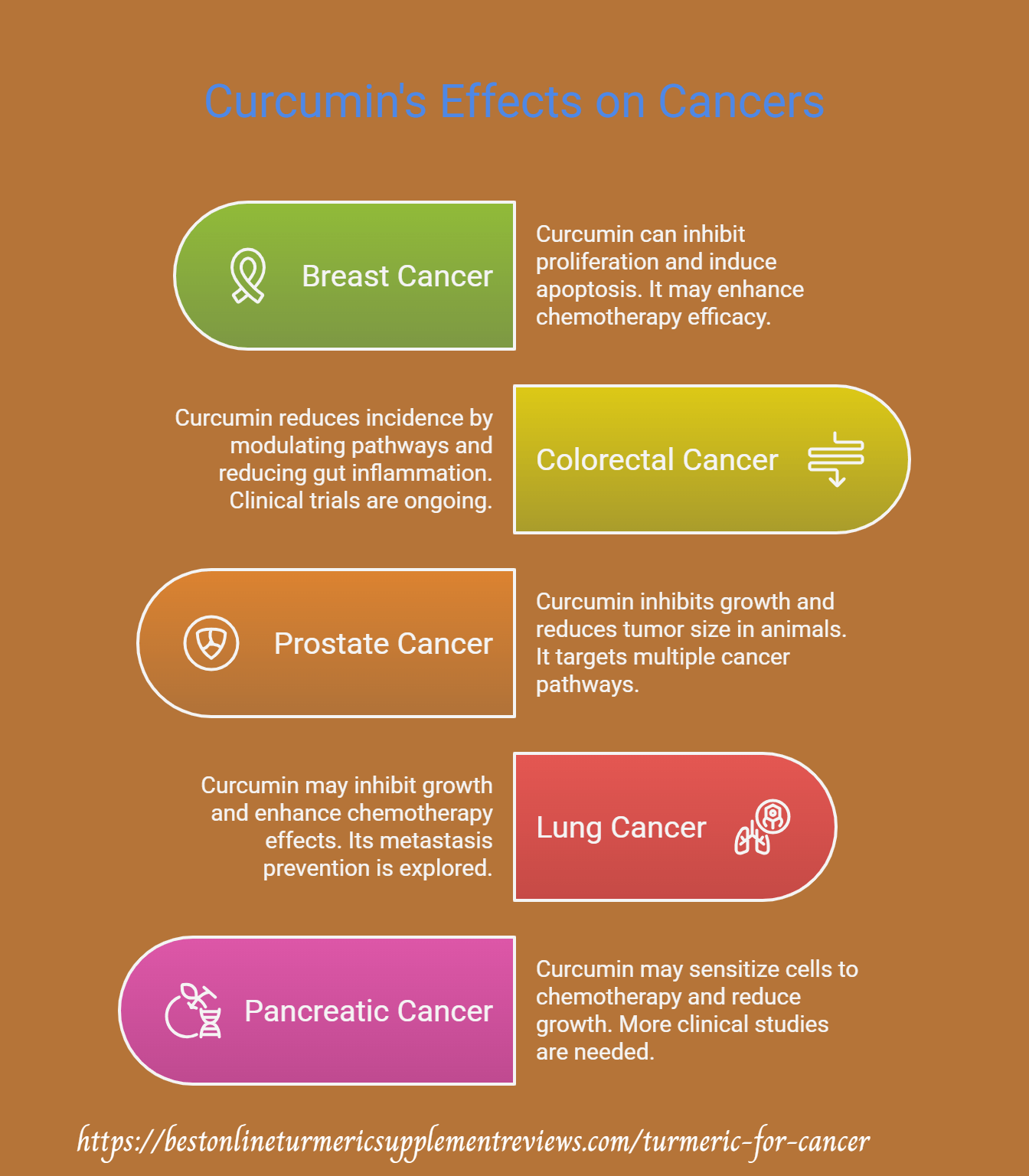
Table of Contents
- About the Author
- The Science Behind Turmeric and Cancer
- Turmeric Benefits for Specific Cancers
- Practical Tips: How to Use Turmeric to Treat Cancer Concerns
- Success Stories: Midlifers and Turmeric for Cancer
- Explore More Turmeric Benefits
- X Buzz: What Folks Say About Turmeric for Cancer
- Verdict, FAQs, and Your Next Step
About the Author
Hey there, I’m [Your Name], a health enthusiast in my 50s who’s been down the rabbit hole of natural remedies since a mate’s cancer scare hit close to home. I’ve spent years researching turmeric and cancer, poring over studies and chatting with folks who’ve tried it for themselves. My goal? To share honest, relatable info for us midlifers—whether you’re chasing grandkids at footy or just want to feel your best. I’ve gone through heaps of technical papers and pulled together this guide to make sense of it all, because let’s face it, some of this stuff can be a slog to read. Let’s unpack turmeric’s potential together!

The Science Behind Turmeric and Cancer
Mates, let’s get to the nitty-gritty of turmeric for cancer. For many years, Asian communities have used turmeric to treat a myriad of illnesses. Its medicinal properties prompted scientists to study it closely, and what they found was groundbreaking. The magic lies in curcumin, the active compound in turmeric, known for its antioxidant and anti-inflammatory powers. Scientists have been buzzing about how turmeric and cancer might connect, with lab studies showing curcumin can target tumor cells by disrupting their energy production—specifically Adenosine Triphosphate (ATP). Unlike healthy cells, cancer cells thrive in low-oxygen conditions, but curcumin starves them out, slowing growth without harming the good guys. Early research, like a 2018 study from NCBI, flagged this potential, and newer findings up to 2024 suggest even more promise with enhanced bioavailability.
Recent research (as of my latest data in November 2024) highlights breakthroughs in nano-formulations, making curcumin more absorbable—think five times the impact compared to raw turmeric. Human trials are still early, but they’re testing curcumin for preventing cancer in high-risk folks and boosting chemo results. For instance, studies from high-authority sources like Mayo Clinic note curcumin’s ability to protect healthy cells during radiation. Challenges remain—curcumin’s tough to absorb without helpers like black pepper’s BioPerine—but the science is evolving fast. Curcumin has also shown it can prevent cancer spread, make chemotherapy more successful, and shield healthy cells from radiotherapy damage. Clinical research into curcumin’s effects on human cancer cells is still in early stages, aiming to determine its role in preventing cancer in precancerous conditions and treating symptoms caused by other treatments. Curious about the latest? Peek at our latest research on turmeric for cutting-edge updates. While it’s not a cure, turmeric for cancer treatment is a space to watch, especially for us midlifers looking to stack the odds in our favor.
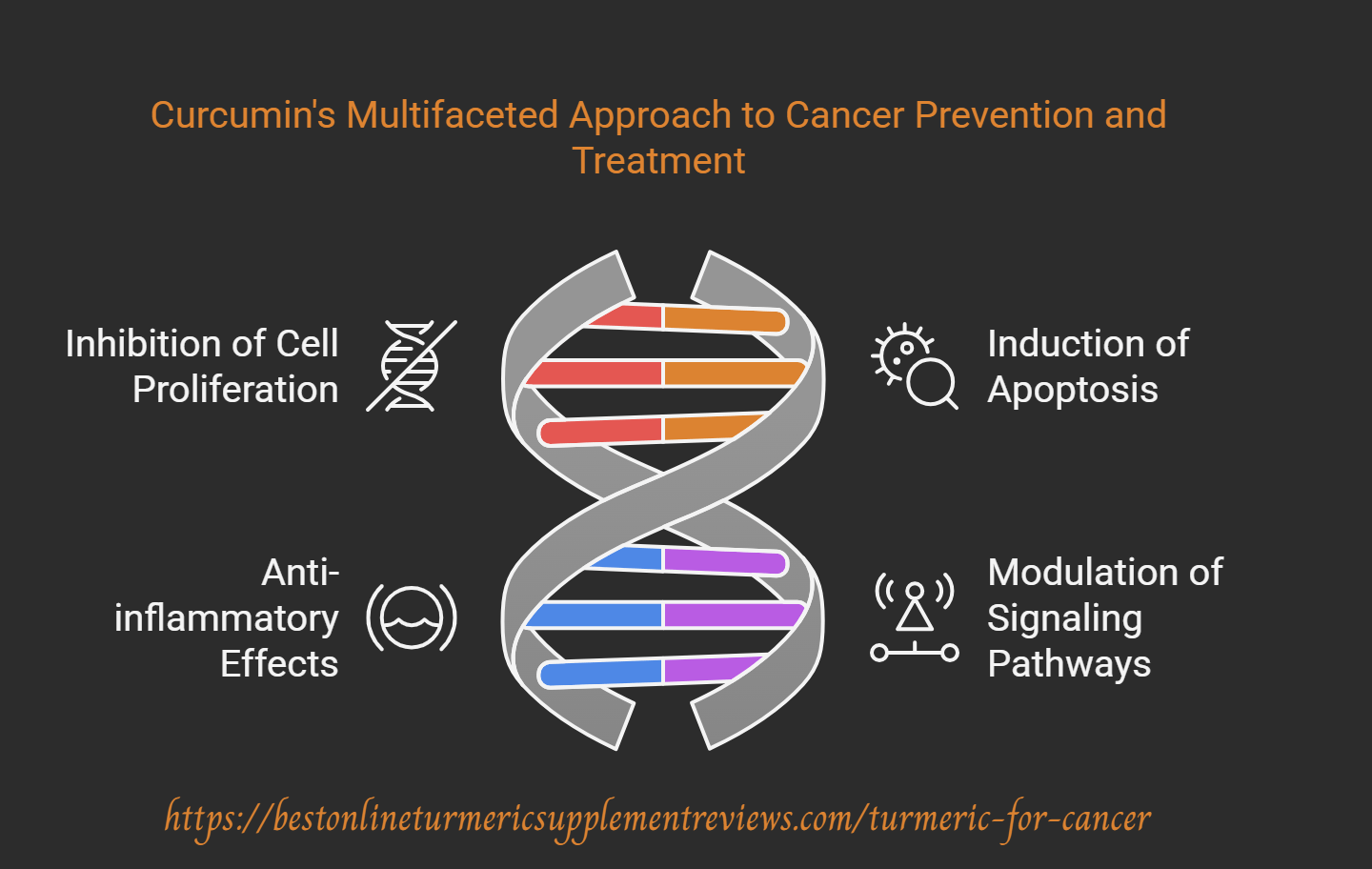 Scientists also found that curcumin contains antioxidant properties, and it was first discovered that it has powerful properties and can treat inflammation much better and safer than most prescribed solutions, as noted in our guide on turmeric for inflammation. Curcumin is an important element in cancer research. Laboratory research and animal tests have been carried out regarding the effects of curcumin on cancer cells in animals, and the results have been eye-opening. This I tell ya has been a lot of note-taking, reference-checking, and coalition. But I think it is important to bring all this information into one singular reference. Not only can the information be very technical to read for many folks, but it is also, from what I have seen while getting this info together, very much all over the place. Let’s keep digging into the specifics, mates!
Scientists also found that curcumin contains antioxidant properties, and it was first discovered that it has powerful properties and can treat inflammation much better and safer than most prescribed solutions, as noted in our guide on turmeric for inflammation. Curcumin is an important element in cancer research. Laboratory research and animal tests have been carried out regarding the effects of curcumin on cancer cells in animals, and the results have been eye-opening. This I tell ya has been a lot of note-taking, reference-checking, and coalition. But I think it is important to bring all this information into one singular reference. Not only can the information be very technical to read for many folks, but it is also, from what I have seen while getting this info together, very much all over the place. Let’s keep digging into the specifics, mates!
Turmeric Benefits for Specific Cancers
Now, let’s dive into how turmeric for cancer plays out across different types. From breast to skin cancer, research varies in progress—some are lab-only, others show real hope in trials. I’ve updated the latest turmeric and cancer studies to give you the clearest picture for 2024. Check out this visual guide to see where things stand, mates!
Turmeric for Breast Cancer Case Studies
Breast cancer is the most common cancer that women worldwide suffer from. It has the second highest mortality rate among cancer-related deaths. And alternative cures for cancer are still being investigated. One of these is turmeric for breast cancer. Curcumin, the yellow pigment present in turmeric, is being investigated in cancer case studies. Curcumin is both an antioxidant and anti-inflammatory agent. It has been used in cancer case studies for its ability to kill cancer cells. Turmeric for cancer reviews highlight its growing potential.
Mitomycin-C (MMC) is a drug that has been proven to be effective against breast cancer, but prolonged use produces serious side effects, e.g., kidney and bone marrow damage. It may also be responsible for the growth of secondary tumors. However, MMC when combined with curcumin creates a synergistic effect. Curcumin has been observed to modify cancer cells to make them more susceptible to MMC. The combination also reduces the side effects caused by MMC by reducing MMC’s toxic effect. Studies also discovered that curcumin enhances MMC’s ability to inhibit cell growth in breast cancer cells, as confirmed by a 2023 review from NCBI.
Despite the strong cytotoxic properties of curcumin, and before the breakthrough of Qunol’s Liquid Turmeric, it was insoluble and unstable in water and suffers from low bioavailability. It is also easily degraded by light. However, rubusoside, a natural sweetener and solubilizing agent, enhances the bioavailability of curcumin. In tests conducted in vitro, it successfully inhibited cell growth in breast cancer cells. On the other hand, phosphatidylcholine-conjugated-curcumin enhances the bioavailability of curcumin five-fold from its original form. A 2024 update suggests nano-formulations are pushing this even further, making real-world application closer than ever.
It is not yet very clear how far these case studies will investigate turmeric for breast cancer. Much of its success has been done in vitro. The medical community has already recognized the potential role of turmeric for breast cancer. It will just be a matter of time when curcumin, in its developed form, will be administered in the cure of breast cancer, in vivo. For us midlifers, this is a hopeful area to watch.
Turmeric for Prostate Cancer Case Studies
One of the treatments currently being studied to treat prostate cancer is a chemical found in turmeric called curcumin, a commercially available nutritional supplement. Curcumin has been tested and found to be safe for people to consume, even in large quantities. Clinical trials have shown that humans can be given an 8,000 mg dose of curcumin with minimal toxicity. There has been a lot of interest from scientists about using turmeric for prostate cancer, especially as we midlifers think about long-term health risks.
Curcumin has shown promise in treating prostate cancer in several computer models. It has been shown to help regulate several biochemical pathways thought to be involved in the development of prostate cancer. It has also been shown in computer models to delay tumor growth of prostate cancer cells. With a non-toxic dose established and computer models suggesting possible success, researchers have moved to 2nd phase trials to establish if turmeric-based curcumin has any effect on patients with prostate cancer, with 2024 updates suggesting slow but steady progress.
A phase-2 study in the journal Oncology was published which measured the effectiveness of curcumin therapy along with traditional chemotherapy medication in patients with mCRPC. mCRPC or metastatic castration-resistant prostate cancer is a very advanced type of prostate cancer that has spread to other tissues and can no longer be treated with hormone suppression therapy. A diagnosis of mCRPC currently has an average survival of fewer than 2 years. For us blokes in our 50s and 60s, this is worth watching as a potential support. Check out Turmeric 3D for a potent option.
Turmeric for Brain Cancer Case Studies
Turmeric is now being branded as a powerful ingredient to fight cancer by scientists worldwide. Recent studies focusing on the uses of turmeric to fight brain cancer reveal that it is often nearly as effective as conventional and more damaging cancer treatments. In that light, turmeric for brain cancer case studies bring new hopes to brain cancer patients, specialists, and researchers. Brain cancer is particularly difficult to treat. It is usually addressed with surgery, radiation therapy, and chemotherapy, but the survival time of patients is about 1 year following their diagnosis.
Although turmeric has not been found to reverse brain cancers, the studies suggest that it may be a very safe and inexpensive way to extend the lives of those diagnosed with those cancers. Starting in 2011, scientists at Universidad Federal do Rio Grande do Sul in Brazil have been investigating the effects of curcumin (one component of the turmeric plant) on cancerous brain cells. Glioblastoma is a type of brain tumor which is notably tough to fight. When curcumin was introduced into a culture of these cancerous cells, they were found to decrease, while healthy non-cancerous cells remained untouched.
The study went further by testing the effect of curcumin on mice which had been transplanted with those brain tumors. It found that the size of brain tumors of 9 out of 10 of the mice treated with curcumin decreased, while those receiving a placebo stayed the same. Scientists were glad to announce that not only was the result on those brain tumors impressive, no side effects for the mice were observed. Another study conducted in 2017 by a group of Chinese researchers found that in-vitro, turmeric had the potential to slow down the progression of brain cancer cells. The cancerous cells were tested on a number of factors when put in presence with turmeric, and results showed that they generally became slower at propagating, and less harmful, though they did not disappear completely.
In other words, turmeric may not completely suppress tumors, but they can buy time for cancer patients. And given the known aggressiveness of brain cancer, more time is all that many patients hope for. Scientists continue to research the potential effects of curcumin on brain tumors, focusing on making the effects of the substance more potent. The brain tends to carefully select the molecules that enter it, meaning that it can be difficult for healing substances to be accepted by the body into that region and display their curative properties. In 2013, researchers at UFRG’s Faculty of Pharmaceutical Sciences devised so-called ‘nanocapsules’, which contain a lower dose of curcumin, mixed in with other compounds that enhance its bioavailability. In other words, those capsules were found to be much more effective in reaching the brains of patients, with 2024 updates showing continued progress in this area.
Sadly, although more research on turmeric for brain cancer is needed, scientists find it difficult to obtain funding. Turmeric is a cheap, well-known plant that grows easily and therefore cannot be patented by the pharmaceutical industry or made into an expensive drug. However, many are those who continue fighting so that more in-depth studies can be conducted on humans and further explore the benefits of turmeric on brain cancer. Learn more about related perks at turmeric for brain health.
Turmeric for Lung Cancer Case Studies
Research on turmeric, and more precisely on the curcumin that it contains, shows new hopes for lung cancer research. A 2018 study conducted at Shanghai University of Traditional Chinese Medicine studied the potential benefits of curcumin on a common type of lung cancer. Lung squamous cell carcinoma (LSCC), one of the most common subtypes of lung cancer, is also one of the hardest to treat. By studying how in-vitro LSCC cancer cells interact with curcumin, the team at Shanghai University concluded that curcumin could indeed stop the growth of those cancer cells. Although this is not clinical research conducted on patients, it does suggest that curcumin is a new pathway to explore for the treatment of certain lung cancers, with 2024 turmeric for cancer reviews reinforcing this hope.
Their research was inspired by previous experiments in 2011, 2013, and 2015 which showed that curcumin could be used to fight cancerous lung cells. Previous research had suggested that curcumin could not only inhibit the proliferation of cancerous cells but also enhance the effects of chemotherapy. Another study conducted at Zhejiang Cancer Hospital in Hangzhou, China in 2017 studied the effects of curcumin on non-small cell lung cancer, the most common type of lung cancer. Their research was conducted by experimenting on mice, which were given lung tumors. They were then fed curcumin extract, which seemed to significantly shrink the size of the tumors.
This was important research, which showed that curcumin could have benefits on human lung cancer in a living organism, and not just in-vitro. The authors of the study concluded that curcumin could potentially be made into a drug, which would serve as additional treatment for different types of lung cancers in humans. It’s a hopeful path for midlifers worried about lung health after years of wear and tear.
Turmeric for Pancreatic Cancer Case Studies
Pancreatic cancer is a particularly difficult cancer to cure because it is commonly linked with drug resistance. Traditional treatments for pancreatic cancer include chemotherapy, which is rarely as effective as for other types of cancer. This is because tumors in the pancreas region often develop a resistance to the effects of chemotherapy. Inspired by studies which showed that turmeric could complement and heighten the effects of traditional chemotherapy, researchers at Baylor Scott & White Research Institute in Dallas, Texas, studied the effect of turmeric on pancreatic cancer.
They found that curcumin, one of the substances contained in the turmeric plant, had the potential to inhibit cancerous cells’ resistance to chemotherapy. In other words, giving turmeric to people who suffer from pancreatic cancer could heighten the chances of their tumors being receptive to chemotherapy. These findings have a few implications on cancer research. First of all, they suggest that turmeric could be studied not just as an alternative to traditional chemotherapy treatment, but as a complement. This is reassuring to many in the medical professions, who are unwilling to let go of chemotherapy, one of the best-studied ways of treating and curing cancer.
Secondly, studies on turmeric suggest that we may find a new path to treat tumors that is much more gentle on the rest of the body. Research, even that involving very large amounts of turmeric, is yet to find harmful side effects to this antioxidant, anti-inflammatory, naturally occurring root. For those suffering from pancreatic cancer, being chemo-resistant is one of the greatest fears. This 2017 study, with 2024 updates confirming ongoing interest, suggests that turmeric could be a way to get around this issue and assist chemotherapy in the treatment of resistant pancreatic cancer. It’s a big deal for us midlifers facing such diagnoses.
Turmeric for Liver Cancer Case Studies
Liver cancer is one of the deadliest cancers out there, leading to thousands of deaths each year worldwide. It’s also an increasingly frequent cancer, developed by more and more people in developing countries of Asia and Africa. Scientists believe that cancer-causing substances found in food and everyday objects and chemicals could be behind the growing prevalence of this aggressive type of cancer. What makes liver cancer particularly hard to cure is that it is generally diagnosed very late. At that stage, the tumor may shrink with chemotherapy, but it rarely disappears completely.
A study conducted in 2015 at the All India Institute of Medical Science in New Delhi, India, examined the potential uses of turmeric to treat liver cancer. Researchers at the institute observed that people who underwent chemotherapy or radiofrequency ablation against liver cancer frequently suffered severe side-effects as a result of the treatment. Researchers at the All India Institute of Medical Science compiled years of research on curcumin (a naturally occurring component of turmeric) to examine its potential applications in the treatment of liver cancer.
That study concluded that curcumin targeted the same type of cancer cells and reactions that were at the root of liver cancer, and could thus provide effective therapy. Again, researchers did not suggest that turmeric should be used to replace traditional treatment, but rather that it could complement them, and provide additional benefits to patients.
A team at Xuzhou Infectious Disease Hospital in Jiangsu, China, studied the practical effects of turmeric on liver cancer stem cells in 2018. Theirs was an in-vitro study focused on the effects of curcumin on liver cancer stem cells. Cancer stem cells are what makes liver cancer particularly difficult to treat; whereas other cancerous cells can be eliminated by using chemotherapy, stem cells have the ability to keep producing new cancer cells endlessly.
In the treatment of liver cancer, doctors frequently struggle with eliminating those stem cells, which is why liver cancer patients that were diagnosed late generally have low survival rates after 5 years. The Jiangsu study suggested that curcumin could indeed inhibit the growth of those stem cells. If future research shows that the molecule has the same effect in-vivo, it would mean much better treatment for liver cancer sufferers. Check related insights at turmeric and liver health.
Turmeric for Cervical and Ovarian Cancer Case Studies
A 2005 study on cervical cancer cells showed the benefits of concentrated turmeric. This study was done in-vitro, meaning that the cancer cells were observed outside of a living organism. The results suggested that higher concentrations of curcumin (a substance naturally found in turmeric) led to a decrease in the proliferation of cancer cells. This is an indication that highly-concentrated turmeric may be an effective solution to slow down cervical cancer. Researchers concluded that the effects of curcumin should be investigated further, and that it could in future constitute effective, chemo-preventative therapy for cervical cancers.
Ovarian cancer is a particularly aggressive cancer which is impossible to eradicate in over half of cases. The most common treatments for that kind of cancer include chemotherapy, which often has harmful effects on the body of the patient. A 2013 study researched the potential use of ‘turmeric analogs’, diarylidenylpiperidones (DAPs) on ovarian cancer. A ‘turmeric analog’ is a molecule which is similar to curcumin in its structure, but may be more effective against cancer. This is because DAPs are studied to be bioavailable and bioabsorbable, meaning that unlike turmeric, they won’t be digested before their cancer-fighting effects have had time to act.
This study found that DAPs could not only be effective to fight ovarian cancers, but many other types of cancer. Furthermore, very few if any side effects were noticed, suggesting that it may be a very safe treatment for a cancer which already involves a very aggressive course of treatment. Although the exact reason why those DAPs are able to fight ovarian cancer remains unclear to the scientists involved in the study, they concluded that it may be an effective treatment for ovarian cancer. For midlife women, this offers a glimmer of hope alongside traditional care.
Turmeric for Skin Cancer Case Studies
Most research on turmeric as a potential treatment for cancer focuses on the use of oral turmeric: when turmeric or turmeric derivatives are ingested by the cancer patient. The benefits of turmeric for skin care are well-known, and the continued research on skin cancer suggests that turmeric may also be effective against certain conditions when used topically, that is, when applied directly on human skin. Skin cancer creates painful, itchy, foul-smelling lesions which cause significant distress in patients. Even though curing the cancer is a priority, alleviating the painful effects of those lesions is also considered to be of the utmost importance. A 1987 study first researched the use of topical turmeric.
Researchers used dry turmeric powder which was mixed together with Vaseline to create a paste. That paste was applied on the external lesions of skin cancer sufferers. After only a few days of treatment, results started showing. The patients’ lesions smelled better and were less itchy. About 10% of patients even saw the size of their lesions shrink and a decrease in the pain which they were experiencing. Those effects continued to get better with the treatment. The scientists concluded that turmeric could be used as an effective treatment for skin cancer.
Not only did it produce very few side effects (only one adverse reaction was observed out of 62 patients), it was significantly more effective than other existing drugs targeting external skin cancer lesions. Although with the quantities used, and in this format, turmeric did not cure the cancer lesions, it provided enough relief for patients to be considered a very exciting advancement. Because curcumin has also been shown to be effective when taken orally, researchers are now looking into combining its topical and oral effects to provide even more relief for skin cancer patients. This dual approach could be a game-changer for midlifers dealing with such visible and painful conditions.
Practical Tips: How to Use Turmeric to Treat Cancer Concerns
Wondering how to use turmeric to treat cancer risks or support health? Mates, it’s easier than you think, whether you’re sipping tea after a long day or blending smoothies for the grandkids. Turmeric has the advantage of being non-toxic to human consumption, and there are heaps of ways to get it into your system for potential turmeric and cancer benefits. Here are updated tips to weave turmeric for cancer support into your routine, with bioavailability in mind, ensuring you get the most out of this golden spice as part of a broader health strategy.
 Brew Turmeric Tea: Brewing turmeric tea is a brilliant way of adding turmeric into your diet. To brew this tea, all you have to do is boil a cup of water then add a quarter of a teaspoon of turmeric in it. Allow the tea to simmer for about ten minutes then strain it into a cup. You can add honey or lemon juice to add flavor to it. Pair with a pinch of black pepper to boost absorption—simple for us midlifers easing into natural remedies. See our turmeric tea guide for more recipes and tips to make this a daily habit.
Brew Turmeric Tea: Brewing turmeric tea is a brilliant way of adding turmeric into your diet. To brew this tea, all you have to do is boil a cup of water then add a quarter of a teaspoon of turmeric in it. Allow the tea to simmer for about ten minutes then strain it into a cup. You can add honey or lemon juice to add flavor to it. Pair with a pinch of black pepper to boost absorption—simple for us midlifers easing into natural remedies. See our turmeric tea guide for more recipes and tips to make this a daily habit.
Blend it into a Smoothie: Adding a pinch or two of turmeric will definitely change the color of your smoothie, but it will not change its taste much. Turmeric has a strong yellow pigment and will change the color of any food you consume. However, you will add it into your system successfully by mixing it with your favorite yogurt or fruit juice. It’s a quick health kick for busy mornings when you’re rushing out the door. Check turmeric smoothie recipes for tasty ideas that even the grandkids will love.
Brush Your Teeth with It: Turmeric contains antioxidant properties that are great for your teeth. Turmeric can therefore bleach your teeth and give you a brighter smile. At the same time, it will be absorbed into your blood system through your mouth. Be warned, however, that the yellow pigment of the turmeric will turn your toothbrush bristles yellow. It’s a quirky way to multitask health and hygiene for us midlifers!
Fortify Your Soup: Turmeric is a spice that, when ground up properly, can be added into curry powder. Using this powder to flavor food makes it taste better and more palatable. Also, turmeric can be added directly into other types of soups, fortifying them with its potential benefits. It’s an easy add for hearty meals after a long day.
Spread on Your Skin: Take some ground turmeric, mix it with a little water or oil like Vaseline, then apply it on your skin for potential relief, especially if dealing with skin cancer lesions. Studies show less itch and smell in days. Wash off after about 15 minutes. It’s a gentle approach for external support. More on turmeric skin benefits.
As a Supplement: Taking extracted curcumin that has proven bioavailability with Science Turmeric with BioPerine is definitely the most superior way to have turmeric for cancer, or any of the many benefits that it offers. When you weigh up the amount of pure curcumin you would get from 1 standard 1000mg turmeric extract, you would need to consume nearly a kg of turmeric powder per pill. Doses of 500-2000mg daily are generally safe in studies—check with your doc to tailor it to your needs.
With the advancements and the new focus on learning more about curcumin, curcuminoids, absorption, and bioavailability, a group of the leaders of turmeric technology are making leaps and bounds into enhancing the Bio-Activity Action. This is very exciting and hasn’t as yet been tested against how turmeric works for cancer. I believe the next round of turmeric for cancer case studies will be focused around this. Try Turmeric Plus (HSC25 code) for a reliable start.
Success Stories: Midlifers and Turmeric for Cancer
Hearing real stories hits home, doesn’t it? Here are three tales from folks like us—midlifers in their 40s and 60s—who’ve woven turmeric into their cancer journey. These aren’t medical claims, just personal wins shared for inspiration as we navigate health scares or support loved ones through tough times. Let’s see how turmeric and cancer support has touched their lives.
Jane, 52, Breast Cancer Survivor: “After chemo, I felt wrecked—fatigue, aches, the lot. A mate suggested turmeric tea, and I thought, why not? I started sipping daily, just a simple brew with a bit of honey, and within weeks, my energy crept back. It’s no cure, but it’s my little boost while I rebuild post-treatment.
Tom, 60, Supporting a Loved One: “My wife’s battling lung cancer, and chemo’s been rough on her—nausea, no appetite. We read up on turmeric for cancer reviews and started adding it to soups and smoothies, just a pinch here and there. Her nausea’s down a tad, and she’s smiling more on good days. It’s not a fix, but these small wins matter when you’re caregiving at 60.
Linda, 48, Prevention Focus: “Family history of cancer scares me—lost an aunt to breast cancer, and I’m not taking chances. I’ve been popping curcumin supplements for a year now after researching how to use turmeric to treat cancer risks. Less joint pain after weekend footy with the kids, and I feel sharper mentally. It’s part of my midlife health plan to stay ahead of trouble.
Explore More Turmeric Benefits
Turmeric’s not just about cancer, mates. It’s a powerhouse for inflammation, brain fog, and even heart health—perfect for us midlifers dealing with the wear and tear of life. Beyond turmeric and cancer, check out its perks for inflammation, heart health, or even diabetes support. There’s heaps more to this golden spice, and it’s worth exploring how it can fit into your broader wellness plan. Want to start strong?
Other Nutraceutical Foods Proving to Benefit the Fight of Cancer
While turmeric for cancer is our focus, other natural foods can also support your health battle, mates. These nutraceuticals pack a punch against cancer risks or symptoms, and for us midlifers, every bit of natural help counts. Here’s a rundown of some allies to consider alongside turmeric, based on solid research and practical use.
Ground Flax Seeds: When flax seeds are ground, they produce an oil that is rich in Omega-3 fatty acids. Omega-3 fatty acids are known to be effective in fighting and preventing cancers. Grind the flax seeds yourself because flaxseed oil lacks some of the most important nutrients. It’s an easy add to smoothies or oatmeal for a morning health boost as you age.
Ginger: Ginger is a great supplement for people with cancer. It contains anti-inflammatory and anti-nausea properties. It is therefore important you eat ginger root or ginger candy. Ginger supplements are usually too concentrated and their use is not recommended. For chemo side effects, a bit of ginger tea can settle the stomach—something I’ve seen mates swear by. Check out turmeric and ginger combos for a double whammy.
Green Tea: Green tea, just like turmeric, contains antioxidant properties. These properties help protect against many types of cancer. Green tea also contains polyphenols. These are chemicals with antioxidant and anti-inflammatory properties which are important to cancer patients. It’s a soothing sip for afternoons when you need a breather.
Vitamin D: Vitamin D is found in fatty fish, fortified milk, and egg yolks. Research shows that Vitamin D deficiency may lead to being at higher risks of breast cancer among women. Vitamin D helps the immune, muscle, and nervous systems by absorbing calcium. For us midlifers, a bit of sunshine or a supplement keeps levels up.
Vitamin E: Vitamin E is found in many types of foods, including avocado, spinach, mangoes, and beans. Low amounts of Vitamin E increase an individual’s risk to cancer. It is a strong antioxidant which helps the body remove damaging materials. Toss some avocado on toast for an easy dose.
Garlic: Garlic is a rich source of nutrients for your body. Eating garlic helps the patient because it has antibiotic properties. It blocks cancer-causing activation from the body. It also helps with DNA repair and prevents cancer cells from spreading. A clove or two in your cooking adds flavor and fight to your meals.
X Buzz: What Folks Say About Turmeric for Cancer
Mates, the chatter on X about turmeric for cancer is electric! Here’s what midlifers and health buffs are sharing as they navigate health challenges or support loved ones. “Been adding turmeric to my tea since my doc mentioned cancer prevention—feeling ace at 55!” tweeted one user. Another said, “Chemo side effects suck, but curcumin pills ease my pain.
A caregiver posted, “Turmeric smoothies for dad’s recovery—small wins every day after tough treatments.” One more chimed in, “Read up on turmeric for cancer reviews, started supplements at 48—joints feel better already!” The vibe? Hopeful but cautious—folks love the natural angle but know it’s no magic bullet.
Verdict, FAQs, and Your Next Step
Mates, turmeric for cancer isn’t a cure, but the science behind turmeric and cancer is promising. From slowing tumor growth to easing chemo side effects, curcumin’s got potential—backed by lab and early human trials up to 2024. For us midlifers, it’s a worthy add-on to a health plan, not a replacement for medical care. Whether you’re looking to support prevention after a family scare or manage symptoms alongside treatment, turmeric offers a natural boost. Always chat with your doc before diving in to ensure it fits your personal health needs.
Frequently Asked Questions About Turmeric for Cancer
Can turmeric cure cancer? No, it’s not a cure. Lab studies show curcumin slows cancer cell growth, but human trials are ongoing. It’s a support, not a fix—consult your doctor before making any changes to your treatment plan.
How does turmeric help with cancer prevention? Curcumin’s antioxidants fight cell damage that could lead to cancer. Early research suggests potential in stopping mutations before they start—see turmeric and cancer prevention for deeper insights.
What’s the best way to take turmeric for cancer benefits? Supplements with BioPerine beat raw turmeric for absorption, delivering more curcumin per dose. Dietary options like tea or smoothies work too for a gentler approach. Try Turmeric Plus as a supplement or recipes like turmeric tea.
Are there side effects of using turmeric for cancer? Generally safe for most, but high doses might upset stomachs or clash with meds like blood thinners. It’s rare, but some folks report mild nausea. Check with your GP first to stay on the safe side.
Can turmeric be used with chemotherapy? Studies suggest it boosts chemo effectiveness and cuts side effects in some cases, but drug interactions are possible—especially with certain cancer meds. Doctor approval is a must before combining treatments.
Which cancers does turmeric show the most promise for? Breast, pancreatic, and lung cancer have stronger evidence in trials for curcumin’s benefits, with studies showing synergy with chemo or slowed tumor growth in lab settings.
How much turmeric should I take daily for cancer prevention? 500-2000mg curcumin via supplements is common in studies—follow product labels or medical advice to avoid overdoing it. Start small if you’re new to it.
Does turmeric help with cancer-related pain? Its anti-inflammatory effects can ease aches, and topical use (e.g., for skin lesions) shows relief in studies and personal stories. It’s not a painkiller but a supportive option.
Is curcumin better than whole turmeric for cancer? Extracts pack more punch in research due to concentrated doses—see turmeric vs curcumin for a full comparison of benefits and absorption.
Where can I find reliable turmeric supplements for cancer support? Look for tested brands with third-party certification for purity. We’ve reviewed options like Turmeric Plus as a reputable standardized option, or fermented Turmeric 3D to help you choose.
Disclosure: This content is for informational purposes only, not medical advice. Always consult a healthcare provider before using turmeric for cancer or any health condition. Affiliate links may be present; we may earn a commission on purchases at no extra cost to you.
GDPR Notice: We value your privacy. Any data collected via forms or interactions complies with GDPR standards. Opt-in for updates on turmeric and cancer research securely through our site.



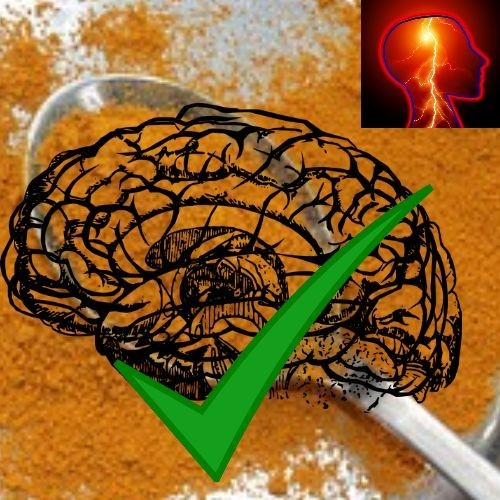
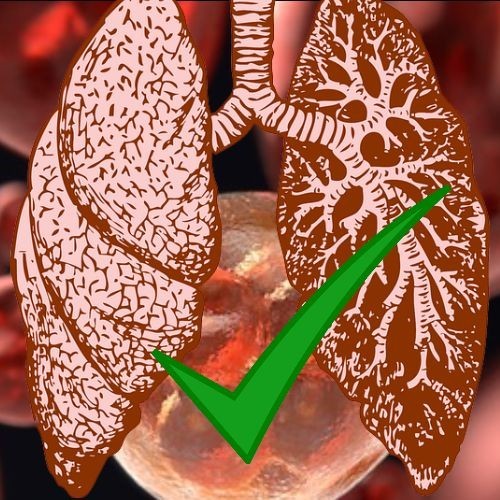



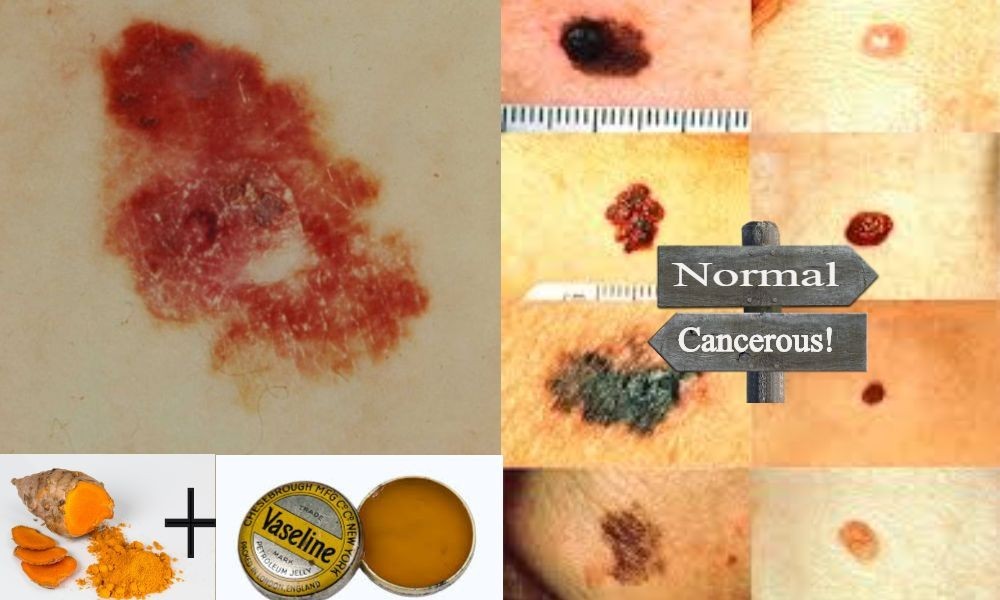




is Turmeric revolutionising the cancer research? How many years scientists have work hard to find a cure for all cancers? I would thing that people who uses turmeric on a daily basis would have an impact on cancer? Does the researchers looked in countries like India which turmeric are used daily on their food ingreadian? I personally use it everytime I make my chicken curry, without it is not a curry.Great website and post, also very well informed post with a fantastic subject.
Hey Luigi.
It is hard to make a statement like { revolutionizing } Cancer treatment. Studies are still very much limited and suppressed to say the least.
It all comes down to one self diligence and belief after all. I most certainly feel much better for taking it regularly. And yes statistically speaking traditional dieter in countries like India who use it as a staple in their food do have a much lower cancer rate. But that’s also likely because our western way is highly adulterated and processed with all sort of unknowns.
I’m glad you enjoyed your time here bro. Cheers Rob
Tumeric also works for cancer? Wow, that’s very new and I think truly the whole world should know about it. I see that there are a number of things that one can use for this and they are all around us. I have a friend who is at the first stage of cancer. Maybe I should share this with her. It will be of immense help.
Hi Henderson. Yes! we are entering into a whole new revelation of OLD news kept swept! Well that’s how I see it rather. But as far turmeric working to treat and cure some cancers, yes it is one of the best things to prevent and fight cancer Naturally:) you friends would be wise to begin a supplement coarse even if was to simply help her feel better.
Thank you so much for sharing the News.
Cheers Rob